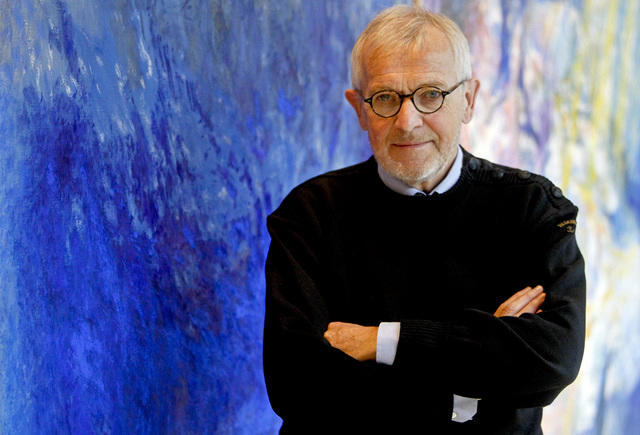This story was originally published by University Communications.

University of Wisconsin–Madison physicist Francis Halzen has been elected to membership in the National Academy of Sciences.
Halzen is one of 120 scientists elected this year in recognition of their distinguished and continuing achievements in original research, according to the academy’s announcement of the new members this week. Election to the academy is among the highest honors that a scientist can receive.
A Vilas Research Professor and Gregory Breit Distinguished Professor of Physics, Halzen directs the UW–Madison Institute for Elementary Particle Physics Research and is the principal investigator of the IceCube Neutrino Observatory. The unique telescope–built within the ice below the South Pole–is the world’s largest and is designed to survey the universe for neutrinos. The nearly massless particles rarely interact with other matter and can provide information about distant galaxies, black holes and other cosmic objects.
Halzen oversaw the design and development of IceCube and its predecessor experiment, the Antarctic Muon and Neutrino Detector Array. Completed in 2010, IceCube is the first observatory of its kind. It detects a type of light called Cherenkov radiation, which is emitted when a neutrino collides into a proton or neutron in an atom in or near the telescope’s billion tons of instrumented ice. These collisions provide scientists with information needed to determine the detected neutrinos’ energy and point of origin.
Halzen’s accomplishments in particle physics, astrophysics and cosmology have garnered him numerous awards and recognitions over the course of his career, including the 2014 Smithsonian American Ingenuity Award, the 2015 Balzan Prize and the 2021 Bruno Rossi Prize. He has published more than 570 papers and has been a fellow of the American Physical Society since 1994.
